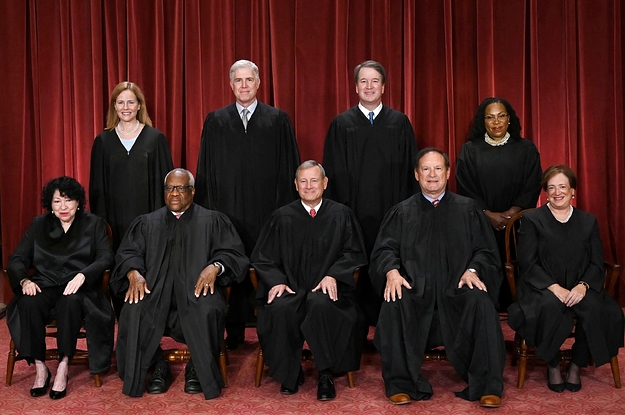The Supreme Court employees who had access to the leaked draft abortion decision have signed sworn affidavits denying their involvement, except for the nine justices themselves. This revelation came after the Office of the Marshal released a report stating that they were unable to identify the person responsible for leaking Justice Samuel Alito’s draft majority opinion in Dobbs v. Jackson Women’s Health Organization to Politico in May. Marshal Gail A. Curley, in a statement, said that the justices were not asked to sign affidavits because they actively cooperated in the investigation and none of the leads implicated them or their spouses.
The report released by the marshal stated that 126 interviews were conducted with 97 court employees as part of the search for the leaker. The investigation primarily focused on court personnel, including law clerks and permanent employees, who had access to the draft opinion. After the initial interviews, each employee was asked to sign an affidavit confirming their innocence under penalty of perjury. The marshal made it clear that if any personnel were found to have lied to the investigators, they would face prosecution for providing false statements.
The leaking of the draft abortion decision has caused significant controversy and speculation about the motives behind it. The decision in Dobbs v. Jackson Women’s Health Organization is highly anticipated and could have far-reaching implications for abortion rights in the United States. The leak to Politico gave insights into Justice Alito’s draft majority opinion, providing a glimpse into the potential direction of the Court’s ruling. However, without knowing the identity of the leaker, it is difficult to determine their intentions or if they had any political motivations.
The fact that the nine justices were not required to sign affidavits has raised questions about the transparency and fairness of the investigation. Some argue that all individuals with access to the draft should have been treated equally and asked to provide sworn statements. The justices, as the highest legal authorities in the country, should not be exempt from such scrutiny, especially considering the gravity of the leaked information.
It is unclear why the marshal chose not to ask the justices to sign affidavits, considering that they were actively involved in the investigation process. The decision may have been based on the belief that the justices’ cooperation and lack of implication in any leads made it unnecessary. Nevertheless, this discrepancy in treatment has fueled speculation and criticism of the investigation’s thoroughness and impartiality.
In conclusion, the investigation into the leaked draft abortion decision has taken an unexpected turn with the revelation that the justices were not required to sign affidavits like other court employees. The hunt for the leaker focused on court personnel and involved numerous interviews and sworn statements. The leak itself has sparked controversy and raised questions about the motives behind it. The decision not to ask the justices for affidavits has led to concerns about transparency and fairness in the investigation. Ultimately, the identity of the leaker remains unknown, leaving the public and legal community in suspense as they await the official announcement of the Court’s decision in Dobbs v. Jackson Women’s Health Organization.









